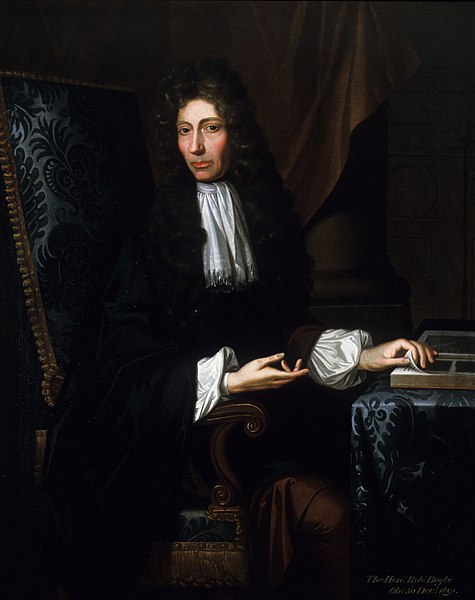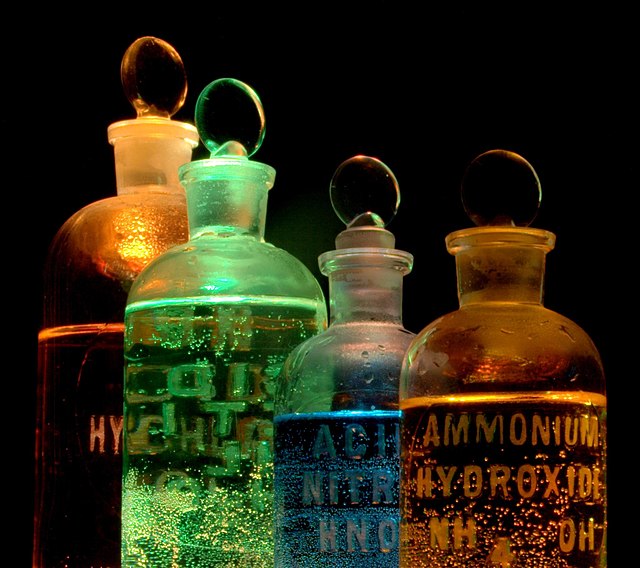Robert Boyle was an Anglo-Irish natural philosopher, chemist, physicist, alchemist and inventor. Boyle is largely regarded today as the first modern chemist, and therefore one of the founders of modern chemistry, and one of the pioneers of modern experimental scientific method. He is best known for Boyle's law, which describes the inversely proportional relationship between the absolute pressure and volume of a gas, if the temperature is kept constant within a closed system. Among his works, The Sceptical Chymist is seen as a cornerstone book in the field of chemistry. He was a devout and pious Anglican and is noted for his writings in theology.
Boyle in 1689
Sculpture of a young boy, thought to be Boyle, on his parents' monument in St Patrick's Cathedral, Dublin.
Boyle's arms (shown on the right right) displayed in the Great Quadrangle of All Souls College, Oxford
One of Robert Boyle's notebooks (1690-1691) held by the Royal Society of London. The Royal Society archives holds 46 volumes of philosophical, scientific and theological papers by Boyle and seven volumes of his correspondence.
Chemistry is the scientific study of the properties and behavior of matter. It is a physical science within the natural sciences that studies the chemical elements that make up matter and compounds made of atoms, molecules and ions: their composition, structure, properties, behavior and the changes they undergo during reactions with other substances. Chemistry also addresses the nature of chemical bonds in chemical compounds.
Image: Sulfur sample
Image: Sal (close)
Laboratory, Institute of Biochemistry, University of Cologne in Germany
Solutions of substances in reagent bottles, including ammonium hydroxide and nitric acid, illuminated in different colors








